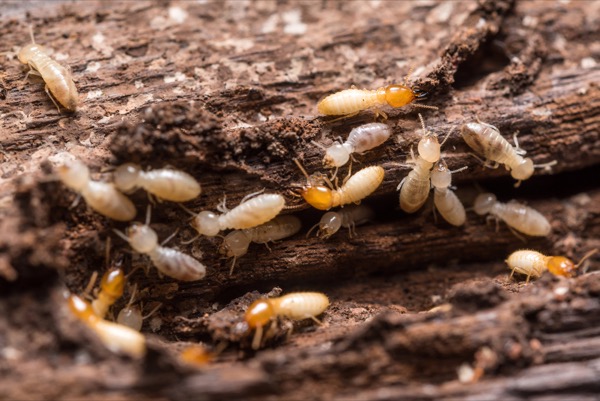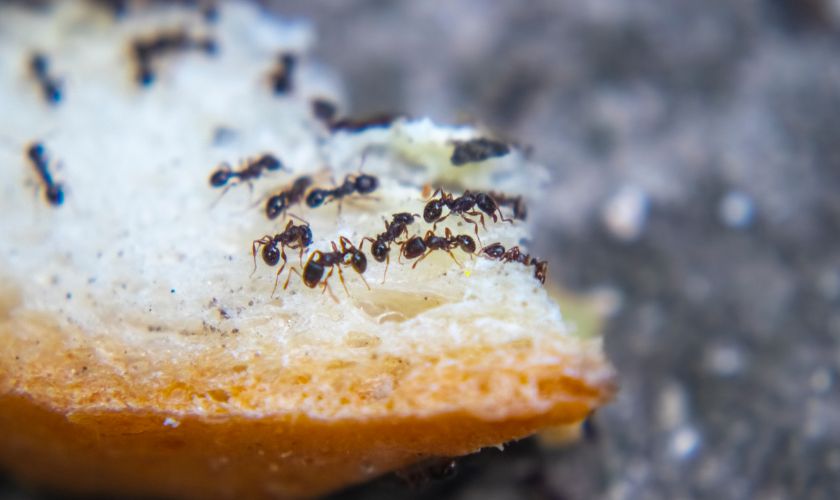Environmental Impact of Pest Control: Balancing Performance With Sustainability
The environmental effect of parasite control is a crucial problem that calls for a fragile equilibrium between accomplishing performance in guaranteeing and taking care of bugs sustainability of our ecosystems. From the use of damaging chemicals that permeate into our dirt and water to the unintentional repercussions on non-target varieties, the consequences of conventional bug control practices are far-reaching.
Damaging Chemicals in Pest Control
The use of unsafe chemicals in bug control positions significant environmental and wellness threats that require careful consideration and reduction strategies. Herbicides, chemicals, and pesticides are frequently used to remove pests, however their extensive application can result in unplanned effects. These chemicals can infect soil, water resources, and the air, impacting not only the targeted insects however likewise helpful bugs, wildlife, and people.

To deal with these threats, integrated insect administration (IPM) techniques are being promoted as a more lasting choice. IPM entails a mix of techniques such as biological control, environment adjustment, and the targeted use pesticides as a last resource (ant control belmont nc). By embracing a holistic method to pest control, we can reduce the environmental and wellness effects related to harmful chemicals while properly handling pest populations
Effect On Non-Target Variety
Considering the unplanned repercussions of insect control methods, the effect on non-target varieties is an important facet that needs complete evaluation. While pest control measures intend to target particular parasites, other microorganisms in the ecological community may be inadvertently impacted. Non-target varieties, including beneficial pests, birds, creatures, and also plants, can suffer indirect or straight injury from pesticide applications or biological control approaches.
Insecticides created to fight a certain bug pest might harm pollinators like or all-natural killers such as ladybugs. Organic control agents, if not species-specific, can pose risks to unintentional targets, disrupting the ecological balance.
To mitigate the effect on non-target types, integrated pest management (IPM) strategies that stress an all natural technique to pest control are advised. These approaches focus on the usage of ecologically friendly practices, minimizing harm to advantageous microorganisms while successfully managing pest populations. Performing detailed danger assessments and keeping track of the end results of parasite control efforts are vital action in safeguarding non-target varieties and advertising overall ecosystem wellness.
Dirt and Water Contamination
Unplanned environmental repercussions of parasite control methods prolong past impacting non-target types, with considerable effects for dirt and water contamination - termite control services. Pesticides, herbicides, and chemical fertilizers used in bug control can seep right into the dirt and contaminate groundwater, positioning a danger to both aquatic and terrestrial environments.
Water contamination is one more vital concern connected with pest control practices. Runoff from agricultural areas treated with pesticides can carry these chemicals into nearby water bodies, affecting aquatic organisms and water top quality. Contaminants in water sources can have far-reaching repercussions, affecting not only water life but also human health and wellness with the consumption of contaminated water or water organisms. To mitigate soil and water contamination from parasite control tasks, incorporated bug administration approaches that focus on sustainability and lessen chemical inputs are crucial.
Air Pollution From Pesticide Use
Direct exposure to air-borne pesticides throughout agricultural applications positions a significant concern for air contamination control measures. They can volatilize into the air and type volatile natural compounds (VOCs) and various other airborne toxins when pesticides are splashed onto plants - ant control. These chemicals can add to the formation of ground-level ozone, a significant component of smoke that can have destructive impacts on human health, plant productivity, and general air quality. Additionally, chemical drift, where chemicals are brought by the wind to unplanned locations, can result in the contamination of neighboring communities and water bodies.

Techniques for Lasting Bug Control
In the realm of agricultural methods, carrying out lasting parasite control techniques is critical for preserving eco-friendly equilibrium and guarding plant returns. Lasting pest control highlights the usage of environmentally friendly methods to manage pest populations efficiently while lessening damage to non-target microorganisms and ecological communities. Integrated Parasite Monitoring (IPM) is an extensively taken on strategy that combines biological, cultural, physical, and chemical control methods to accomplish lasting bug administration services.
One key method in lasting pest control is advertising biodiversity within agroecosystems. By improving all-natural opponents of pests, such as killers and parasitoids, farmers can reduce the demand for synthetic pesticides. Crop rotation and diversification are additionally efficient strategies to interrupt pest life process and create less positive problems for pests to thrive. In addition, utilizing pest-resistant plant ranges and employing strategies like catch chopping can help in reducing pest stress without relying greatly on chemical treatments. Inevitably, by integrating these sustainable insect control methods, farmers can attain an equilibrium in between pest management performance and environmental stewardship.
Final Thought
Finally, the environmental effect of bug control techniques should be very carefully taken into consideration to stabilize effectiveness with sustainability. Unsafe chemicals made use of in bug control can bring about dirt and water contamination, air contamination, and harm non-target types - ant control. It is vital to implement sustainable bug control strategies to reduce these unfavorable results on the setting and promote a healthier ecosystem for future generations
By embracing an all natural strategy to pest control, we can minimize the environmental and health effects connected with dangerous chemicals while properly taking care of pest populaces.

To minimize the air pollution created by pesticide use, it is important to take on integrated pest monitoring methods that focus on the use of non-chemical bug control approaches, such as crop turning, natural predators, and immune plant varieties. Sustainable parasite control emphasizes the usage of environmentally friendly techniques to take care of pest populations properly while minimizing damage to non-target microorganisms and communities. Integrated Parasite Monitoring (IPM) is a commonly embraced technique that incorporates organic, social, physical, and chemical control ant control apex nc approaches to accomplish lasting pest management services.